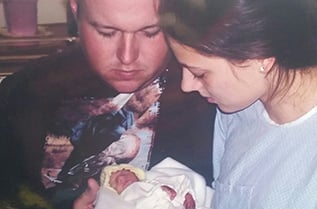This biochemical test is a quantitative measurement of Aspartyglucosaminidase enzyme activity and can be used as a 1st tier test for patients with a clinical suspicion of Aspartylglucosaminuria. Demonstration of deficient Aspartyglucosaminidase enzyme activity is considered the gold standard to confirm a diagnosis of Aspartylglucosaminuria.
In addition, this assay can be used to clarify molecular findings in the AGA gene and to monitor patients undergoing treatment.
2 weeks
82657
$200
Aspartylglucosaminuria is a rare lysosomal storage disorder (LSD) characterized primarily by progressive intellectual disability. Patients with this disorder typically have some skeletal and connective tissue abnormalities, and mildly coarse features. Frequent infections, behavioral changes, cardiomyopathy, and changes in the facial skin have also been reported in association with this LSD.
Patients with a suspected diagnosis of aspartylglucosaminuria.
Enzyme activity can be measured in plasma, leukocytes, or dried blood spots. For plasma, please send 5-10 ml of whole blood in a green top (sodium heparin) tube OR plasma can removed from spun down sample and sent frozen. For leukocytes, please send 5-10 ml of whole blood in a green top (sodium heparin) tube. For dried blood spot collection, a minimum of three circles need to be filled in. Each circle should contain one drop of blood (about 100 microliters). See the link below for additional sample collection and handling instructions.
Whole blood samples (for leukocyte or plasma analysis) should be shipped at ambient temperature and must arrive at the laboratory the next day. Plasma that has been separated and frozen should be shipped frozen, preferrably on dry ice. For a dried blood spot: When the sample has dried 3-4 hours, fold cover at score line, over sample, and tuck into flap. Samples can be mailed at ambient temperature.
Call our laboratory at 1-800-473-9411 or contact one of our Laboratory Genetic Counselors for assistance.
Robin Fletcher, MS, CGC
Falecia Thomas, MS, CGC
Alex Finley, MS, CGC
